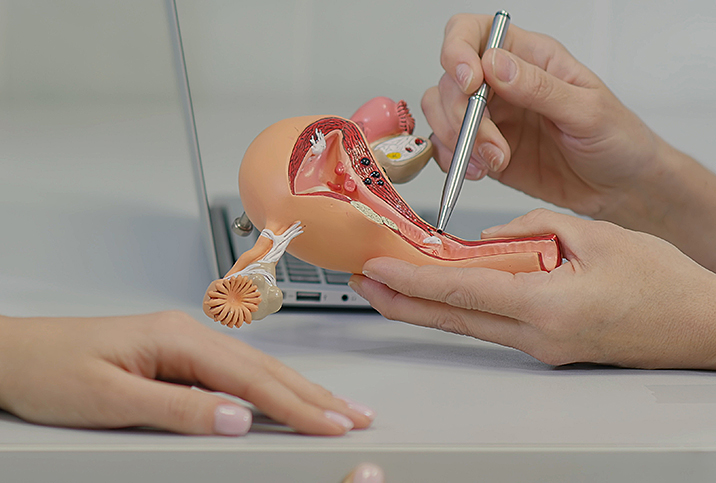Recognize the Subtle Symptoms of Ovarian Cancer

Ovarian cancer is a cancer (uncontrollable growth and division of cells) of the egg-releasing organs that flank the uterus. The fifth-leading cause of cancer-related deaths in American women ages 35 to 74, ovarian cancer is difficult to diagnose in its early stages and is therefore particularly dangerous. Many women experience few or no symptoms until the cancer has spread to other areas, including the pelvis and abdomen.
More advanced cases of ovarian cancer lead to the constitutional signs of cancer, such as fatigue and unexplained weight loss, as well as changes in bowel and bladder habits, abdominal pain or bloating, feeling full quickly, heartburn and pelvic discomfort. As these symptoms are noticeable, they are commonly what prompt patients to seek medical attention.
Importance of early detection
By the time common symptoms show up, ovarian cancer has likely spread beyond the ovaries, causing noticeable symptoms and worsening prognosis. The earlier cancer is detected, the better the outcome, and while the prognosis for any single individual is impossible to generalize, cases caught early have a five-year relative survival rate of higher than 90 percent. That's significantly greater than the five-year survival rate associated with cases caught in stage 3 or later, which may be as low as 28 percent.
Unfortunately, just 20 percent of ovarian cancer cases are detected early, in stages 1 or 2. Increasing this statistic could significantly improve the odds of survival for individual women and decrease total deaths from the disease.
Early & subtle symptoms
While easily overlooked, some subtle signs may be an indicator of a serious problem and thus professional medical evaluation. These are similar to common symptoms but may be milder in nature. For example, pelvic or abdominal cramping can be an early sign that precedes true pain in those areas. Many women miss this sign because cramping is easy to brush off as menstruation or a stomach bug.
Changes in appetite should not be overlooked, either. Becoming fuller faster could simply mean you ate a big meal the night before or, if you're dieting, your stomach has shrunk. But it could also be a sign of an ovarian cancer tumor. Unexplained weight loss can be indicative of an issue. Indigestion and upset stomach, even mild cases, can be signs, as can nausea, bloating, abdominal swelling or constipation. Urinary changes are important, too, such as needing to pee frequently or having the sudden urge to pee. Other early signs are menstrual changes (heavier or irregular bleeding), being more tired than normal, experiencing pain during sex, and chronic lower back pain.
For most women, some of these symptoms are a regular part of life and may mean nothing bad, or they might be caused by other medical issues. That's precisely why ovarian cancer is so difficult to detect early. While you don't want to err toward hypochondria, it's important to be in tune with your body's changes. It's a good idea to make a note of your symptoms (with dates), even mild ones, so you can pick up on any patterns.
When to see a doctor
If you experience anything odd, or recurring or persistent symptoms, call your doctor. Even if it's nothing, it's better to be safe than sorry. The doctor will let you know if you need to come in for evaluation, such as a pelvic exam, a transvaginal ultrasound, imaging, blood tests or a biopsy.
Be especially aware if you're at high risk for the disease. Risk factors include a family or personal history of breast, ovarian or colorectal cancer, being overweight, being older than 50, having had hormone therapy after menopause, being diagnosed with polycystic ovary syndrome (PCOS) or having had no full-term pregnancies before age 35. Your doctor can explain your risk and discuss the need for additional screening or genetic testing for a gene mutation linked to ovarian cancer.
If you think something strange is going on, don't panic. Most of us frequently experience small pains and changes in our body, and it doesn't necessarily mean something is wrong. But by being mindful and sufficiently in tune with your body, you may pick up on early signs and avoid a serious health crisis.
















